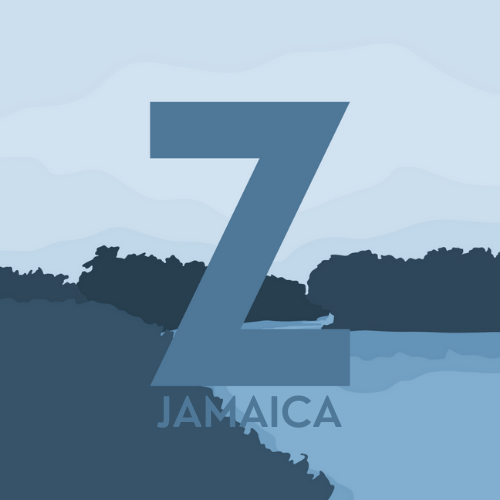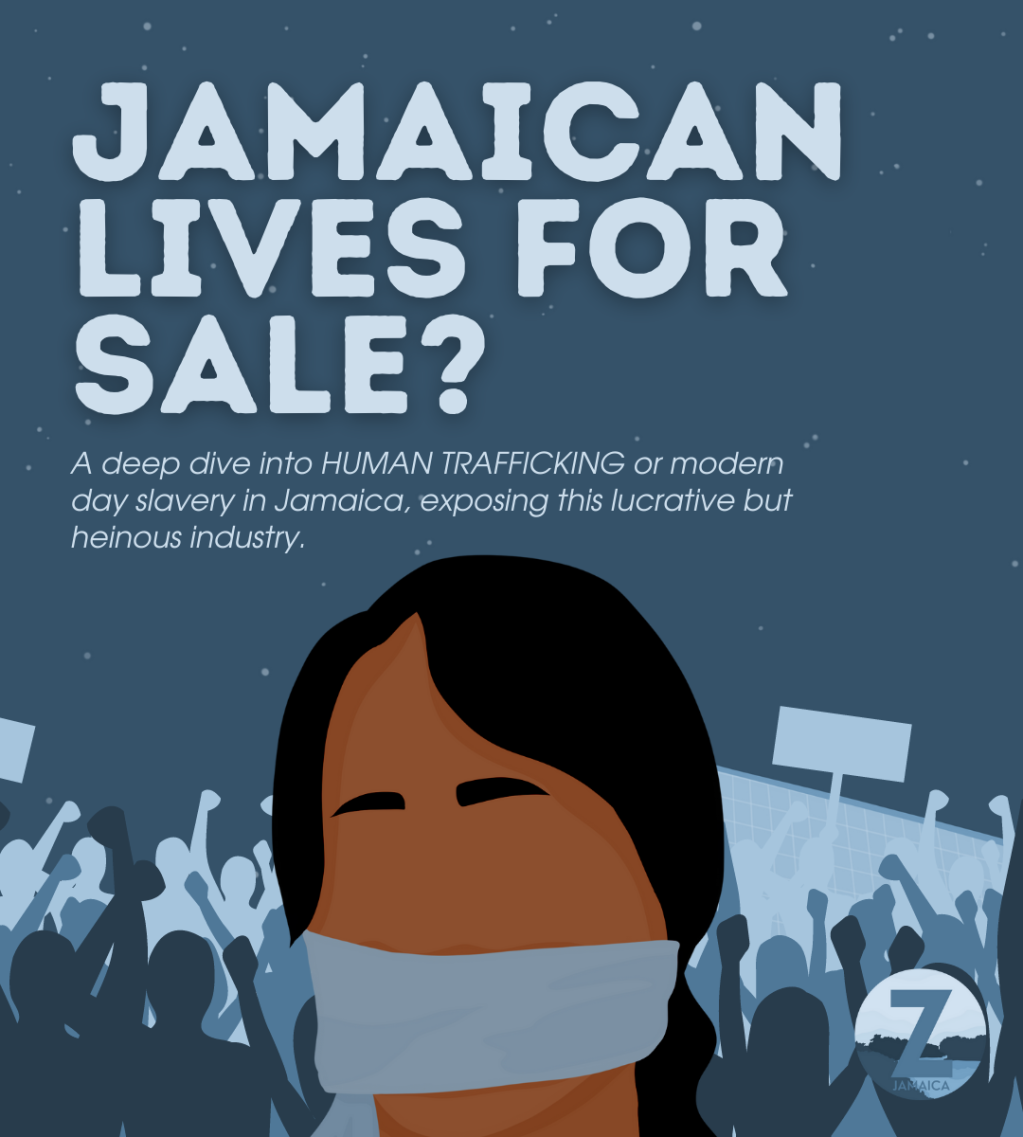by Tori-Ann Collier | November 5, 2021
HUMAN TRAFFICKING IN JAMAICA: Modern Day Slavery by Tori-Ann Collier
“Slavery is not a horror safely confined to the past; it continues to exist throughout the world, even in developed countries…” -Kevin Bales
This quote, by author Kevin Bales, helps to acknowledge that slavery still roams through modern society, this form of slavery is not limited to people of colour but all races, genders, and socio-economic backgrounds. This type of slavery is more commonly known as Human Trafficking.
Each year, an estimated 600,000-800,000 men, women, and children are victims of human trafficking but, do you know what human trafficking actually is?
Human trafficking is described as a form of modern-day slavery. It is the recruitment, transportation, transfer, harbouring, or receipt of persons by means of force, abduction, fraud, or coercion for an improper purpose, including but not limited to forced labour or sexual exploitation. It is recognized as one of the most organized and heinous crimes globally.
The 3 most common types of human trafficking are sex trafficking, forced labor, and debt bondage, but overall there are at least 6 forms of trafficking globally.
HUMAN TRAFFICKING IN JAMAICA
Despite the barbaric and inhumane nature of human trafficking, many countries have been slow in addressing this issue or unsuccessful in fully combatting it. According to the US Department of State 2013 Report, Jamaica is a source, transit, and destination country for adults and children subjected to sex trafficking and forced labour. This leads to the belief that the thousands of persons that are reported missing daily might be victims of human trafficking.
As reported over the past five years, human traffickers exploit both domestic and foreign persons in Jamaica. Trafficking of Jamaican citizens usually occurs by way of being taken from off the streets, in hotels, bars, private homes, nightclubs, and many more locations. As an example, traffickers use social media platforms and newspaper advertisements to lure women into prostitution under the pretense of employment, but then withhold payment and hold them hostage. This highlights the importance of persons needing to keep safe on online platforms and validate certain job opportunities before accepting them.
There are certain groups in Jamaica that are vulnerable to sex trafficking and forced labour, these include:
- Children from underprivileged households
- Child victims of sexual abuse
- Homeless LGBTQIA+ youths
- Residents of Jamaica’s poverty stricken areas (controlled by criminal “dons”)
Additionally, girls and women can be subjected to sex trafficking by male family members who provide payment in exchange for sexual acts and local observers report that this form of child sex trafficking may be widespread in many Jamaican communities.
KNOWN HOTSPOTS IN JAMAICA FOR SEX TRAFFICKING (According to The Office of the National Rapporteur)
- Hip Strip, Montego Bay
- Truck Stop, St. Ann
- Backroad, Portmore
- Ripon Road, Kingston
ORGANIZATIONS IN JAMAICA AIMING TO ERADICATE SEX TRAFFICKING AND OFFER SUPPORT TO VICTIMS
- Jamaica Constabulary Force, Trafficking in Persons Unit
- Jamaica Constabulary Force, Centre for the Investigation of Sexual Offences and Child Abuse (CISOCA)
- Child Development Agency
- Office of the Children’s Advocate
- The Association of Women’s Organisation of Jamaica (AWOJA)
The following organizations listed above fall under the National Task Force Against Trafficking in Persons (NATFATIP). Established in 2005, this group aims to implement, monitor, and evaluate the national response to Human Trafficking.
This task force has been working over the years to put an end to Human Trafficking. Some notable achievements of NATFATIP include:
- Enactment of the Trafficking Persons Act in 2007: An act that aims to prevent, suppress and punish trafficking in persons, especially in young women and children.
- Developed a guide (The Law Enforcement Manual Guide to Investigation) which serves a formal guide to help with the identification of human trafficking victims for all government and law enforcement officials.
- In 2012 to 2013, they worked with authorities to conduct 255 raids which resulted in the safe rescue of 39 victims
As young women and children, their lives are constantly in danger and they are at risk of the majority of criminal acts involving kidnapping, rape, and other sexual acts. Though the chances of them saving a victim of human trafficking, without the help of authorities may be low, gaining knowledge on how you can help could save someone’s life.
HOW TO IDENTIFY A VICTIM/RED FLAGS FOR HUMAN TRAFFICKING
- Evidence of lack of ability and control to move freely or leave a job.
- Bruises or signs of physical abuse
- Individual not being in control of his/her travel documents
- Individual is unable to move to another location (may be another parish or community)
- Individual appear to be submissive or fearful in situations where it’s unwarranted
- Sexually provocative clothing inappropriate for weather or situation
- Individual’s responses appear to be scripted or rehearsed
WHERE CAN VICTIMS BE FOUND
- Massage Parlours
- Escort Services
- Bars and Strip Clubs
- Hotels and nightclubs
- Private and public homes
WHAT CAN WE DO TO STOP HUMAN TRAFFICKING/ HOW TO STAY SAFE
- Beware of job opportunities that seem too good to be true, such as all expenses paid for work abroad opportunities
- Are you being promised lots of money, a great life, and other gifts?
- Do you see new people in your community that appear to not be able to move around freely?
- Be an informed consumer. Find out where goods are made and the conditions under which they are made before you buy them
- Be aware of your surroundings
- Join a club to raise awareness, and help to educate the young women and children in Jamaica so they can keep safe.
IF SOMEONE YOU KNOW APPEARS TO HAVE BEEN LURED, TRAPPED, TRICKED, THREATENED, OR IMPRISONED BY A STRANGER, THIS COULD BE A CASE OF HUMAN TRAFFICKING
CALL 811 OR THE NEAREST POLICE STATION


Leave a comment